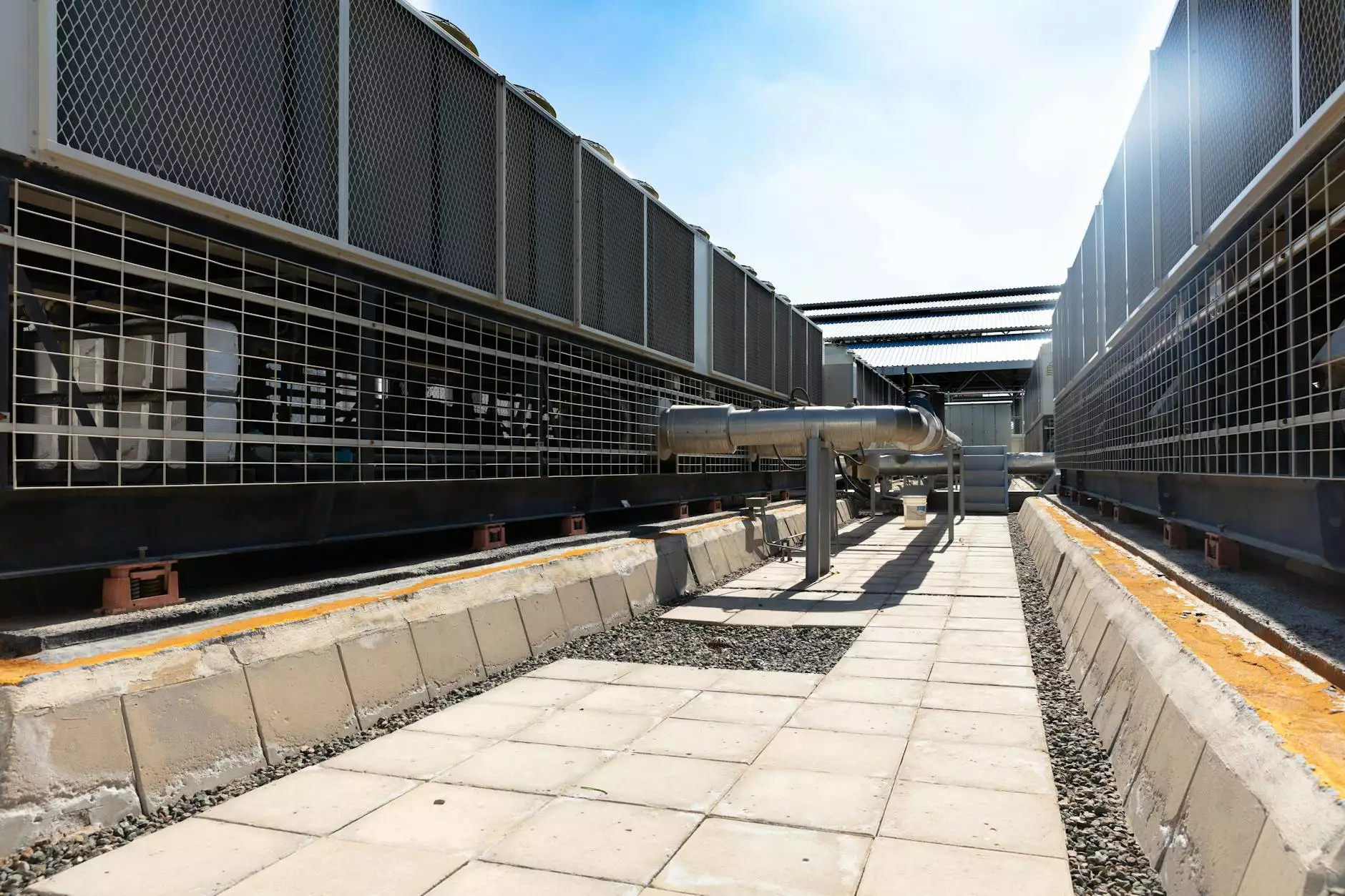Transform Your Comfort: The Ultimate Guide to HVAC Systems

As homeowners and business operators, ensuring a comfortable environment is a top priority. The Heating, Ventilation, and Air Conditioning (HVAC) system plays a crucial role in achieving that comfort. This guide aims to provide an in-depth understanding of HVAC systems, their components, benefits, and maintenance, helping you make informed decisions for your comfort needs.
Understanding HVAC Systems
At its core, an HVAC system is designed to manage your property's temperature, humidity, and air quality. By grasping the fundamental components of HVAC, you can better appreciate how these systems maintain indoor comfort.
The Components of HVAC Systems
- Heating: This component can include furnaces, heat pumps, and boilers. These systems can be powered by gas, electricity, or oil to generate heat and distribute it throughout your space.
- Ventilation: Proper ventilation is vital for circulating fresh air into the building and removing stale air. This can be done naturally or through mechanical systems that manage air flow.
- Air Conditioning: The cooling aspect, typically managed by air conditioning units or systems that can also dehumidify air. This helps maintain a comfortable temperature during hotter months.
Benefits of a Quality HVAC System
Investing in a high-quality HVAC system offers numerous advantages that extend beyond simple comfort:
Energy Efficiency
Modern HVAC systems are designed with energy efficiency in mind, significantly reducing energy costs. By optimizing energy usage, you not only save money but also help the environment.
Improved Indoor Air Quality
HVAC systems equipped with advanced filtration options help reduce allergens, dust, and other harmful particles, resulting in healthier air for you and your family.
Enhanced Comfort
By efficiently regulating temperature and humidity, HVAC systems maintain a consistent indoor environment, enhancing comfort levels year-round.
Increased Property Value
A well-maintained HVAC system can enhance your property's market appeal. Potential buyers often factor in HVAC upgrades as a significant advantage during the purchasing decision.
How to Choose the Right HVAC System
When selecting an HVAC system, several considerations must be taken into account:
Assess Your Needs
Consider the size of your space, local climate, and specific heating and cooling needs. A professional assessment can help determine the right size and system type.
Energy Efficiency Ratings
Look for systems with high Energy Star ratings. These models meet strict energy efficiency guidelines set by the U.S. Environmental Protection Agency, ensuring you make an environmentally friendly choice.
Type of System
Choose from various systems, including central air conditioners, heat pumps, or ductless mini-split systems, based on your property setup.
Cost Considerations
Factor in not just the initial cost, but also the potential energy savings, maintenance costs, and longevity of the system. Investing in a quality system often saves money in the long run.
Maintaining Your HVAC System
Regular maintenance is essential to keep your HVAC system running efficiently. Here are key steps to consider:
Regular Filter Changes
The air filter is a vital component that ensures clean air circulation. Changing or cleaning filters regularly enhances performance and improves indoor air quality.
Annual Professional Inspections
Scheduling professional inspections annually can catch potential issues before they escalate, ensuring your HVAC system operates smoothly and efficiently.
Monitor Thermostat Settings
Utilizing programmable thermostats can optimize your system’s efficiency by adjusting temperatures based on occupancy patterns, leading to significant energy savings.
Clear Air Vents and Ducts
Keeping air vents and ducts clear from obstructions ensures optimal airflow throughout the system. Regular cleaning can prevent dust buildup, which affects system performance.
Integrating Smart Technology with HVAC
Modern HVAC systems can be enhanced with smart technology options, allowing for greater control and efficiency:
Smart Thermostats
Smart thermostats enable remote control of your HVAC system via mobile apps, allowing you to adjust settings even when you’re away from home. These devices learn your habits to optimize heating and cooling schedules.
Energy Management Systems
Integrating an energy management system can help monitor energy usage and identify areas for improvement, contributing to a more efficient operation of your HVAC system.
Common HVAC Issues and Troubleshooting
Understanding common issues can help in maintaining your HVAC system effectively:
No Warm Air from the Heating System
This can often be traced back to a faulty thermostat, dirty filters, or issues with the furnace. Regular maintenance can prevent these issues from arising.
Inconsistent Temperatures
Inconsistent heating or cooling may indicate ductwork issues or problems with the unit itself. Ensuring proper insulation and sealing in your ductwork can often resolve this problem.
Strange Noises
Unusual sounds can indicate mechanical issues, which should be addressed immediately by a professional to prevent further damage.
Increased Energy Bills
A sudden spike in energy bills can indicate that your HVAC system is struggling. Routine maintenance and timely repairs can help mitigate these costs.
Conclusion
Investing in a high-quality HVAC system is key to maintaining a comfortable and healthy environment in your home or business. Understanding the components, benefits, and maintenance of HVAC systems empowers you to make informed decisions. For expert services, resources, and reliable information, visit dihaairconditioning.com. With the right knowledge and care, your HVAC system can provide lasting comfort for years to come.
https://dihaairconditioning.com/








